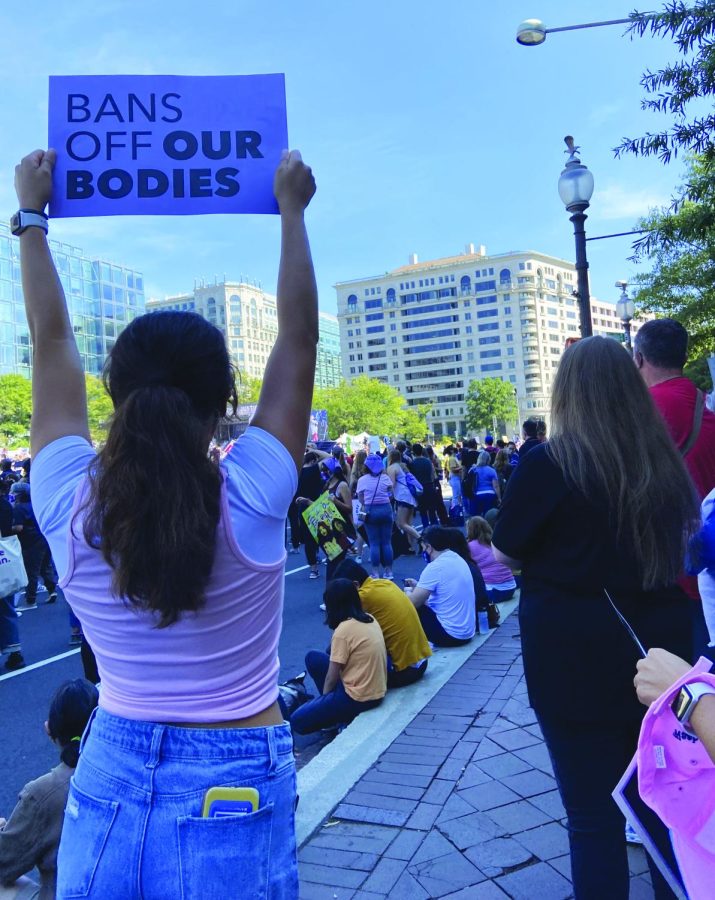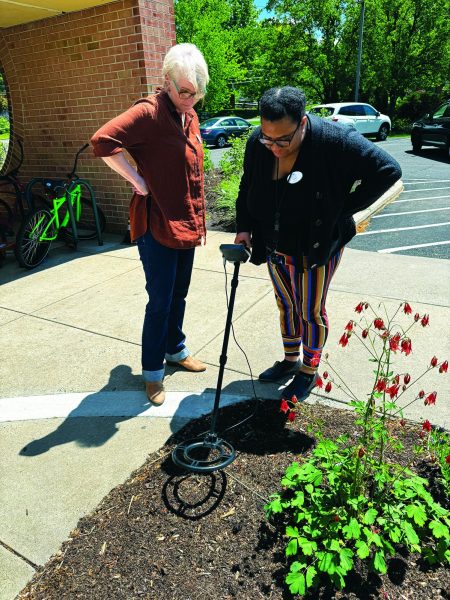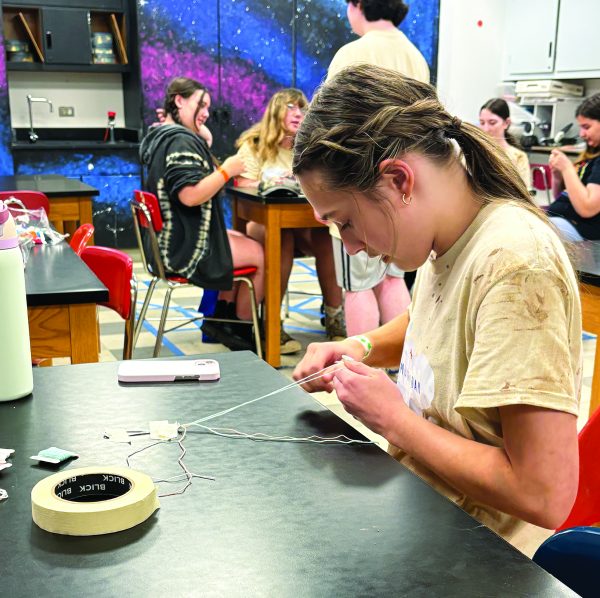New Supreme Court case threatens Roe v. Wade
In an attempt to overturn Roe v. Wade, in 2018, Mississippi passed a law that bans abortions past 15 weeks. This case sparks debate around the necessity of Roe v. Wade.
Standing for a cause…Raising her sign to spread a message, 2020 Souderton alumna Cassie Rodrique takes in the “Bans Off Our Bodies” protest in Washington D.C. The event took place on October 2.
The Dobbs v. Jackson Women’s Health Organization case regarding the law is being reviewed by the Supreme Court.
Roe v. Wade is a landmark Supreme Court case that constituted a woman’s right to abortion without government intervention, therefore prohibiting states from passing restrictive abortion laws that ban abortions before fetal viability (23-24 weeks).
According to the New Yorker, this Mississippi law is a continuation of a trend where states have been purposely passing legislation violating Roe v. Wade “in the hopes that a case will be brought to the Supreme Court, giving them a chance to reevaluate abortion rights and overturn Roe v. Wade.”
Social studies teacher Amanda Gale said that the Supreme Court “could go either way,” despite the majority of Supreme Court Justices being anti-abortion.
“Justices surprise people,” Gale said. “It’s much more about the law and the arguments that are presented and precedent and even a bit of public opinion.”
It is predicted that the Supreme Court will reach a verdict in spring 2022 in time for the midterm elections.
Until then, many people are anticipating the verdict’s arrival.
Gale said that the heavy controversy regarding abortion shows the “polarization” of American politics.
“I think for a lot of people it’s a moral issue for them, on both sides,” Gale said.
Women’s Aid Society Vice President Paige Swankoski hopes that Roe v. Wade remains a constitutional right.
“Overturning Roe vs. Wade would pose a huge threat to women’s reproductive rights,” Swankoski said. “I think that all women should have the right and the ability to have a safe, legal abortion.”
According to the World Health Organization, illegalizing abortions does not reduce abortion rates but rather increases the number of unsafe abortions due to a lack of access to clinics that provide medically safe abortions.
On one side, some view laws like the Mississippi Law to be rightfully productive in illegalizing abortions.
Senior Casey Assaid said that legislation like the Mississippi abortion ban is beneficial because it suggests government is realizing that abortion is wrong.
If Roe v. Wade is overturned and states successfully pass legislation that bans abortions, Gale believes that it’s important that those states have the necessary “social safety nets” to provide good conditions for the children.
“We care so much whether or not you get an abortion but then we stop caring about the kid after that and it’s kind of like your problem,” Gale said.
Sophomore Emily Rychlack said that pregnancies should be carried out because “the baby has the right to live” but that states should be “making sure that there are a lot of options that are easily available for after the child is born.”
The Mississippi ban only includes exceptions for medical emergencies and extreme fetal deformities, following in suit with the Texas Heartbeat Bill in not providing exceptions for instances of incest or rape.
“I would feel really bad for my friends because if they were put in an unsafe situation or they couldn’t handle having a baby, [they would] not even have the option of an abortion,” junior Nick Diamond said. “I feel like that could really hurt [the baby] and their lives.”
“At the end of the day I think what you do with your body is your choice and if you don’t believe in an abortion, don’t get one,” Swankoski said.








